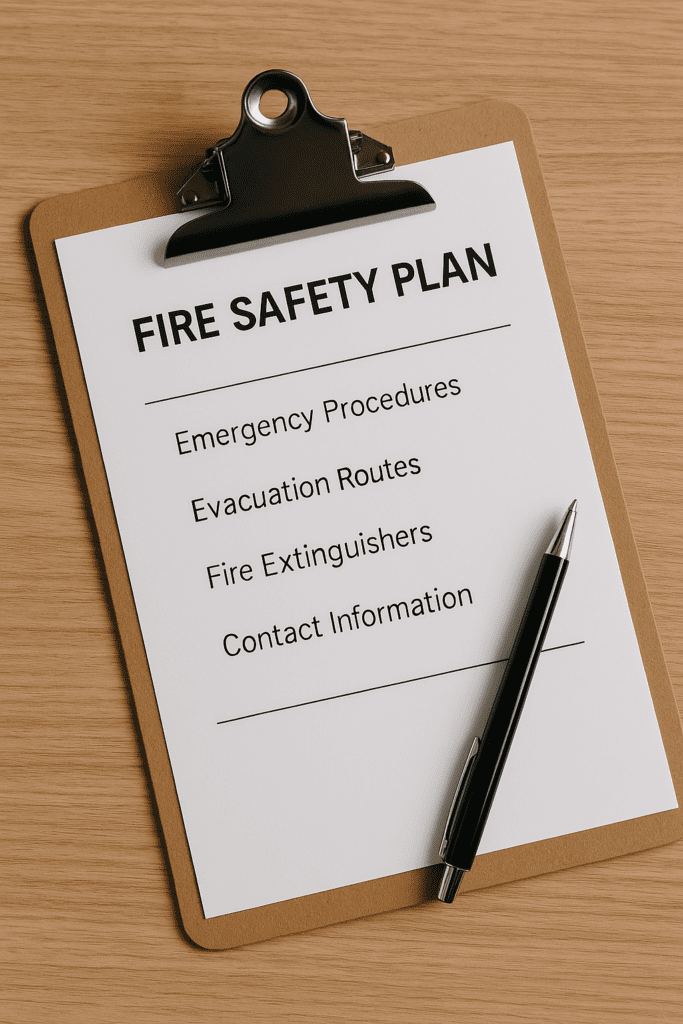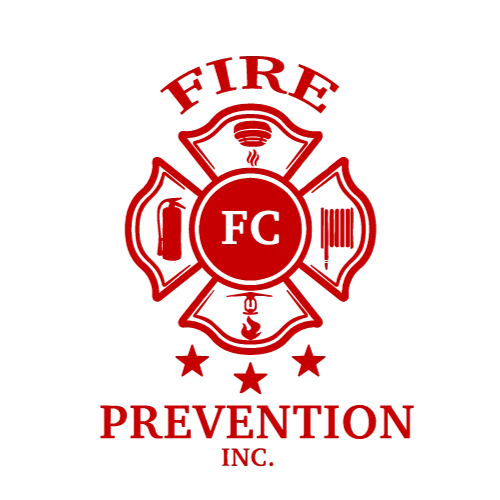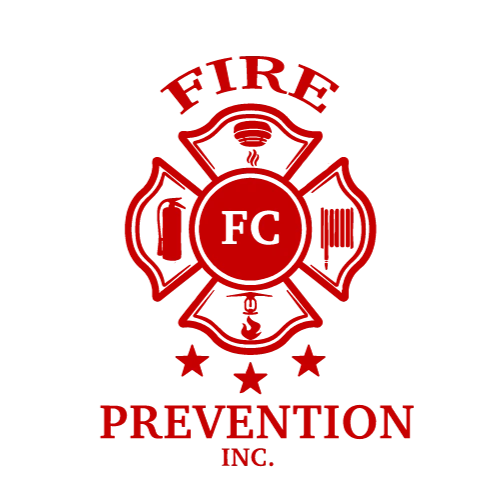
As a commercial business owner in Toronto or the GTA, you understand the importance of keeping your employees, customers, and property safe. But when was the last time you had a fire extinguisher inspection or updated your fire safety plan? Fire emergencies can happen anywhere – Toronto Fire Services responded to 880 residential fires in 2023, about half of all fire incidents that year (Toronto Fire Services 2023 Annual Report). The other half included fires in commercial, industrial, and other properties, meaning businesses are very much at risk. In this guide, we’ll break down why regular fire equipment inspection and a solid fire safety plan aren’t just legal requirements – they’re critical safeguards for your business. We’ll also cover what’s involved in inspections and planning, the consequences of non-compliance, and how FC Fire Prevention can help you stay safe and compliant.
Why Fire Safety Compliance Matters for Businesses
Imagine a small fire starts in your office kitchen or workshop – a frayed wire sparks or a toaster oven overheats. With the right preparation, this scenario can be a non-event: a staff member grabs a fire extinguisher and snuffs out the flames within seconds. (In fact, surveys show portable extinguishers successfully put out about 80–93% of fires before they grow out of control (93% of fires extinguished by Portable Fire Extinguishers 2022)!) However, without a working extinguisher on hand or an emergency plan, that minor flame could spread into a devastating blaze. It’s no exaggeration to say that many businesses never recover from a major fire incident (93% of fires extinguished by Portable Fire Extinguishers 2022) – the financial losses and downtime, not to mention potential injuries, can shutter a company for good.
Fire safety compliance is about being prepared before anything happens. By following fire codes and standards, you significantly reduce the chances of a small spark turning into a catastrophe. It’s not just about avoiding disaster, either; it’s also about everyday peace of mind. When you know your fire extinguishers, alarms, and other fire protection equipment are regularly inspected and functioning, you and your employees can work with confidence. Moreover, being proactive with fire safety is part of being a responsible business owner in our community – it protects not only your business, but also neighboring businesses and residents from potentially spreading fires.
Fire Extinguisher & Fire Equipment Inspections: What’s Involved and Required

Fire extinguisher inspection isn’t just a good idea – it’s the law. In Ontario (and across Canada), fire codes align with standards set by the National Fire Protection Association (NFPA). The Ontario Fire Code specifically requires that all portable fire extinguishers in commercial, industrial, and multi-residential buildings are inspected and maintained regularly (Fire Code Fines – Ontario Fire Protection). In practice, this means two levels of inspection:
- Monthly Visual Inspections: At least once a month, a quick check should be done to ensure each extinguisher is in place and in good condition (Ontario Fire Extinguisher Service and Maintenance : Fire Extinguisher Inspections, Tests and Maintenance in Ontario). This is often performed by a staff member or the business owner. It involves verifying that the extinguisher is easily accessible (not blocked), the pressure gauge is in the green, the safety seal is intact, and there’s no visible damage or leakage. Essentially, you’re making sure the unit will work if needed. (Don’t worry, you don’t have to crack it open – just look it over! If anything looks off, you call in a professional.)
- Annual Professional Inspections:At least once a year, you must have a licensed fire protection technician perform a thorough inspection and maintenance on each extinguisher (Ontario Fire Extinguisher Service and Maintenance : Fire Extinguisher Inspections, Tests and Maintenance in Ontario). During an annual fire equipment inspection for your extinguishers, a technician will:
- Check the physical condition of the extinguisher (hose, nozzle, tank) for any signs of wear, corrosion, or damage.
- Verify the pressure level and refill or recharge the extinguisher if needed.
- Ensure the locking pin and tamper seal are intact (indicating it hasn’t been used or tampered with).
- Confirm the label and instructions are legible and the maintenance tag is updated.
- Perform any required maintenance or testing (for example, some types of extinguishers require internal inspections or a hydrostatic pressure test every 5 or 6 years).
These steps make sure your extinguisher will actually work during an emergency. A pressure gauge in the green zone alone isn’t a guarantee – an expert can catch issues that aren’t obvious (like a partially discharged unit that still shows pressure, or an expired chemical agent). After a successful inspection, the unit gets a dated tag or sticker so you (and the fire marshal) know it’s up to date.
Keep in mind fire extinguishers aren’t the only equipment that need regular checks. Other fire protection systems in your business – such as fire alarms, sprinkler systems, emergency lighting, and exit signs – also have inspection and testing schedules under the Fire Code. For example, fire alarm systems typically require annual testing (often following NFPA 72 standards), and sprinklers need annual inspections and sometimes quarterly checks of valves (per NFPA 25 standards). While this article focuses on extinguishers, a good fire prevention service (like FC Fire Prevention) can coordinate all your fire equipment inspections to keep you fully compliant.
Fire Safety Plans for Toronto Businesses

Having up-to-date equipment is only part of the equation. Equally important is having a fire safety plan in place – and in many cases, this too is a legal requirement. So, what exactly is a fire safety plan? It’s a written document (often a binder or digital file) that outlines how to prevent fires in your building and what to do if a fire does occur. A fire safety plan typically includes things like:
- Emergency procedures for occupants and staff (e.g. how to sound the alarm, call the fire department, evacuate safely, and assist anyone requiring help).
- Evacuation route maps and designated safe meeting locations outside.
- Roles and responsibilities of key staff or fire wardens (for example, who will check that everyone is evacuated, who will use an extinguisher if safe to do so, etc.).
- Details of fire protection systems and equipment in the building (locations of extinguishers, alarms, sprinkler shut-offs, etc.).
- Maintenance schedules for the fire equipment (to ensure those monthly and annual inspections happen on time).
- Contact information for emergency services, the building owner/manager, and fire protection service companies.
- Fire drill schedules and training plans (many buildings are required to conduct regular fire drills).
In short, the fire safety plan is the playbook for fire emergencies – it tells people ahead of time how to react quickly and correctly. In a crisis, that preparation can save lives.
Is your business required to have a formal fire safety plan? In Ontario, Section 2.8 of the Fire Code mandates a fire safety plan for many types of buildings and occupancies. This includes most larger commercial buildings and any high-occupancy spaces. For example, if your building is an assembly occupancy (like a restaurant, bar, or event venue), a care or treatment facility, a multi-unit residential building, or a business or retail store with an occupant load over a certain threshold, you must have an approved fire safety plan (FAQ | Fire Safety Plan Ontario) (FAQ | Fire Safety Plan Ontario). Specifically, offices or personal services businesses with more than 300 people, stores (mercantile occupancies) with more than 300 people, and industrial buildings over certain sizes are all required to have a plan. Even smaller businesses that aren’t explicitly required by law can benefit greatly from having a fire safety plan – after all, emergencies can happen anywhere, and having a plan improves response and reduces panic.
Your fire safety plan needs to be reviewed and updated regularly. Anytime something changes – you renovate, you move to a new location, you change the use of a space, or even update your fire systems – the plan should be updated and re-submitted to the local fire department for approval if required. The Toronto Fire Department (or your local fire service in surrounding areas) will typically need to approve your fire safety plan initially to ensure it meets all requirements. Once approved, you should train your staff on the plan and keep a copy accessible on site (often by the main entrance or fire alarm panel, where firefighters can easily find it). Regular fire drills (e.g. annually or as required) help ensure everyone is familiar with the procedures in the plan.
Risks of Non-Compliance with Fire Codes
Some business owners might be tempted to skip an inspection here or delay updating their fire safety plan – perhaps thinking it’s “no big deal” or trying to save a bit of money. This is a huge gamble that can cost far more in the long run. The risks of non-compliance include:
- Legal Penalties: Fire code regulations are not optional. If an inspection by the fire marshal finds you’ve neglected required maintenance or have no fire safety plan when one is needed, your business can be charged under the Ontario Fire Code. The penalties are steep – individuals (e.g. an owner) can face fines up to $50,000 and even up to a year in jail, and corporations can be fined up to $100,000 per offence (Leamington Property Owner and Business Owner Fined For Ontario Fire Code Violations | windsoriteDOTca News – windsor ontario’s neighbourhood newspaper windsoriteDOTca News). In one recent case in Ontario, a business owner and property owner were fined a combined $10,000 for multiple fire code violations. Fire officials will usually try to work with you to gain compliance first, but if you don’t cooperate, they will enforce the law. As the saying goes, “the Ontario Fire Code establishes regulations for fire safety in buildings, and failure to comply can result in substantial penalties” (Leamington Property Owner and Business Owner Fined For Ontario Fire Code Violations | windsoriteDOTca News – windsor ontario’s neighbourhood newspaper windsoriteDOTca News).
- Increased Fire Risk: This is obvious but worth emphasizing – if you aren’t regularly inspecting and maintaining fire equipment, it might not work when you need it most. For example, if you skip the annual extinguisher servicing, an extinguisher could slowly lose pressure or have a hidden defect. Then, when a fire ignites, that extinguisher might sputter out or fail to discharge, allowing a controllable fire to spread. Similarly, if exit lights or alarms aren’t working due to poor maintenance, people might not evacuate in time. Non-compliance isn’t just about rules; it directly correlates to higher chances of a small incident becoming a major disaster.
- Insurance Consequences: Insurance companies expect you to follow safety laws and take reasonable precautions. If a fire does occur and it comes to light that you violated fire codes (for instance, you had expired extinguishers or no fire safety plan in a building that required one), your insurance claim could be denied or reduced. Insurers may view code violations as a form of negligence. In fact, failing to maintain basic fire safety measures or “ignoring building codes can lead to claim denials” (10 Reasons Insurance Companies Deny Fire Claims & How to Avoid Them). That means you’d be on the hook for the full cost of damages out-of-pocket – a blow that could bankrupt many businesses.
- Business Disruption and Reputation: Beyond fines and insurance, think about the downtime. A small fire that could have been snuffed out might instead rage and force your business to close for repairs for weeks or months. You could lose customers, revenue, and employee jobs during that time. If it’s found that you were negligent, it can also hurt your reputation in the community. Compliance shows you take safety seriously; neglecting it signals poor management and disregard for safety.
In short, non-compliance is just not worth it. The cost of routine inspections and plan updates is minor compared to the potential costs of a fire or a code violation penalty. Fire officials in Ontario have not been shy about penalizing those who flout the rules, especially if it results in a dangerous situation. And more tragically, no fine or insurance payout can undo a serious injury or the loss of life. The good news is all these risks are preventable by staying on top of your fire safety responsibilities.
Stay Safe and Compliant with FC Fire Prevention
The world of fire codes and inspections can feel overwhelming, but you’re not alone. FC Fire Prevention is here to help businesses in Toronto and the surrounding areas navigate fire safety with ease. Our team of fire safety experts specializes in keeping your business compliant and safe through comprehensive services:
- Fire Extinguisher Inspections & Maintenance: We perform both the required annual inspections and any needed repairs or recharges for your portable extinguishers. Our technicians will ensure every extinguisher in your building is tagged, up-to-date, and ready to fight a fire at a moment’s notice. (We can also train your staff on monthly visual checks, so nothing gets overlooked between our visits.)
- Fire Equipment Inspection Services: From emergency lighting and exit signs to smoke alarms, hoses, and sprinkler systems, we offer scheduled inspection programs for all your critical fire protection equipment. One call to FC Fire Prevention and you can set up a complete fire equipment inspection regimen tailored to your facility’s needs, keeping you fully compliant with Ontario regulations. We’ll keep track of when your next tests are due, so you don’t have to worry about missing a date.
- Fire Safety Plan Development and Review: Don’t have a fire safety plan yet? Or has it been gathering dust on a shelf? We can help you create a clear, effective fire safety plan from scratch or update your existing plan. Our experts are well-versed in the Ontario Fire Code requirements for fire safety plans (FAQ | Fire Safety Plan Ontario) and have experience getting plans approved by fire departments in Toronto and across Ontario. We’ll work with you to map out evacuation procedures, assign responsibilities, and implement the plan in your daily operations. Already have a plan? We offer auditing and training services – we can run fire drills and information sessions with your team so that everyone knows what to do in an emergency.
- Fire Code Compliance Consulting: Not sure where to start or if you’re fully compliant? We can perform a fire safety audit of your business. We’ll check your extinguishers, alarms, exits, and documentation against code requirements and give you a clear report of any gaps. Think of it as a friendly check-up before the fire department or an emergency puts you to the test.
At FC Fire Prevention, our approach is practical and personable. We know that as a business owner, you have a million things on your plate. Our job is to make fire safety one less thing to worry about by handling the technical details for you and guiding you every step of the way. We pride ourselves on being prompt, thorough, and respectful while working in your facility – whether it’s an office downtown Toronto, a restaurant in Mississauga, or a warehouse in an industrial park.
Don’t wait for a fire marshal’s inspection or, worse, a fire itself to reveal safety issues. Take a proactive stance now. Ensuring your fire extinguisher inspections are up to date and your fire safety plan is in place will protect your people, property, and livelihood. Compliance with the fire code isn’t just about avoiding fines (though that’s important too); it’s about demonstrating that you care about safety – for your employees, your customers, and your community.
Call to Action
Ready to bolster your fire safety? Contact FC Fire Prevention today to schedule your next fire extinguisher or fire equipment inspection, or to get expert help developing a robust fire safety plan for your Toronto-area business. We’re happy to answer your questions and provide a no-obligation quote or consultation. With the right partner and a solid plan, you can focus on running your business knowing that your fire safety is in excellent hands. Stay safe, stay compliant, and let us help you protect what matters most!
Sources:
- Ontario Fire Code & NFPA requirements for fire extinguisher inspections (Ontario Fire Extinguisher Service and Maintenance : Fire Extinguisher Inspections, Tests and Maintenance in Ontario) (Ontario Fire Extinguisher Service and Maintenance : Fire Extinguisher Inspections, Tests and Maintenance in Ontario)
- Ontario Fire Code Section 2.8 – Fire Safety Plan obligations (FAQ | Fire Safety Plan Ontario) (FAQ | Fire Safety Plan Ontario)
- Toronto Fire Services fire incident statistics (Toronto Fire Services 2023 Annual Report)
- Fire industry survey on extinguisher effectiveness (93% of fires extinguished by Portable Fire Extinguishers 2022) (93% of fires extinguished by Portable Fire Extinguishers 2022)
- Ontario Fire Code penalties for non-compliance (Leamington Property Owner and Business Owner Fined For Ontario Fire Code Violations | windsoriteDOTca News – windsor ontario’s neighbourhood newspaper windsoriteDOTca News)
- Insurance implications of fire code violations (10 Reasons Insurance Companies Deny Fire Claims & How to Avoid Them)


Comments are closed